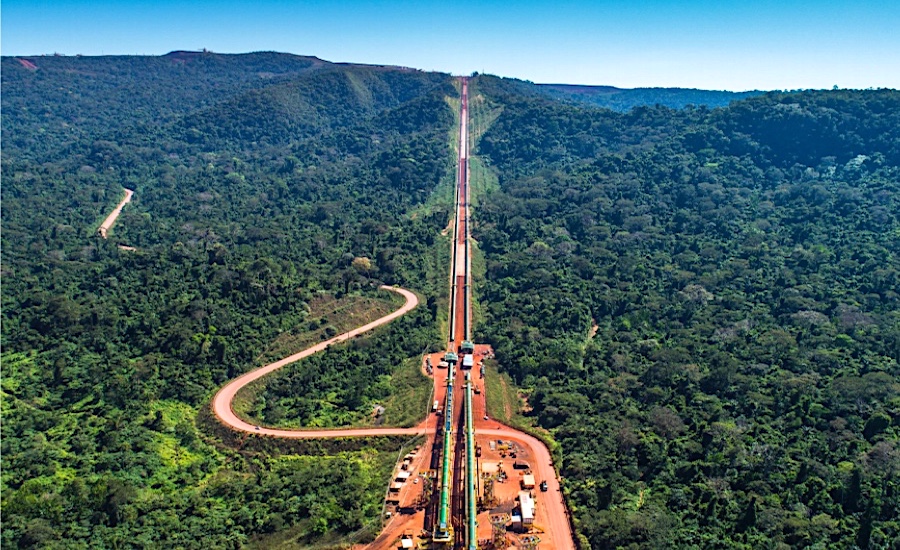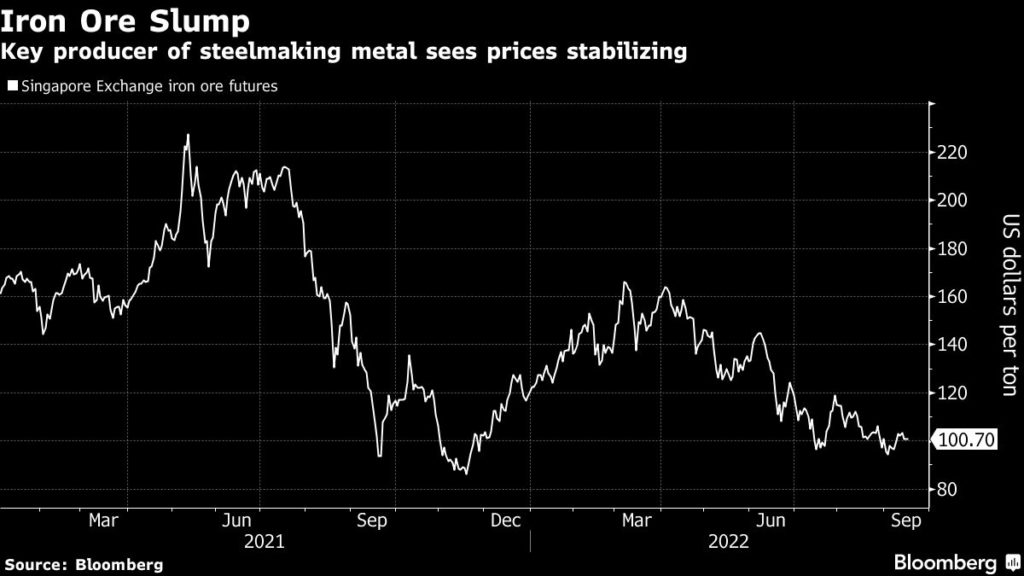Vale says iron market ‘can only get better’ amid tight supply

The iron ore market has stabilized with impacts of China’s Covid-19 lockdowns and real-estate woes already priced in, according to a top producer of the steelmaking ingredient.
“The good news is that from now on it can only get better,” said Luciano Siani, head of strategy and business transformation at Vale SA, the world’s second-largest iron ore producer.
Unlike previous downturns in Chinese demand that caused iron ore prices to plummet, they are now likely to hold close to the current level of $95 to $100 a metric ton since miners are having a hard time supplying the markets, he said in an interview.
“There is no ore available in the near term,” Siani said.

The iron ore industry is facing headwinds after enjoying a period of prosperity in the first half of 2021. Profit margins once inflated by a commodities boom are now being squeezed as slumping prices collide with inflation and recession fears. China demand has softened as lockdowns and a property crisis threaten to undermine the nation’s peak construction season. Iron ore futures have plunged 40% from a March peak.
China remains an important buyer of metals, though a global transition from fossil fuels to cleaner energy sources will become the main driving force for business decisions in the mining industry for the next 20 years, Siani said. That shift will prompt China steelmakers to demand higher iron content. Vale aims to preserve its market share by becoming a top supplier of high-grade iron ore products, which today fetch a premium of around $85 a ton to lower-grade varieties.
Vale has been pursuing partnerships with steelmakers looking to address the challenge of finding cleaner ways to process minerals. Its efforts include developing so-called green briquettes that the firm says can cut greenhouse gas emissions during steelmaking production by as much as 10%. The company plans to have hubs to make iron ore products in regions with low energy costs, including the Middle East and US, within the next two decades, Siani said.
The Rio de Janeiro-based company also has ambitions to become a bigger player in the base metals that underpin the energy transition, moving beyond its focus on nickel and copper, Siani said. Vale wants to expand in key metals needed for electric vehicles and the renewable energy industry, and would consider acquisitions.
One battery metal that’s less appealing for Vale at the moment is lithium, due to soaring valuations for miners of the mineral crucial to EV batteries.
“Lithium is an interesting market, but I’d say at the moment the companies’ valuations have passed the point where it would be attractive to make a move,” Siani said.
The company is looking for a partner to build a nickel sulphate operation in Canada and is in talks with battery recyclers to broaden exposure to the EV supply chain.
Vale gave investors a glimpse of a pipeline of base-metals projects during a recent presentation in Canada, where it operates large nickel mining operations in Sudbury, Ontario and Voisey’s Bay in Labrador. The miner also aims to get bigger in copper, given looming shortfalls of the metal used in wiring.
“There will be a significant deficit,” he said. “If a company has a licensed copper project ready to be implemented, no investor will say ‘don’t do it’.”
(By Mariana Durao, with assistance from James Attwood)
{{ commodity.name }}
{{ post.title }}
{{ post.date }}




Comments